Another link-to-comments post... I'm criminally unable to resist baiting Glenn Kenny, the erudite proprietor of Some Came Running. With the result that I sometimes end up putting more time into comments on his posts than anything written here! Here's a highlight or two:
-Arguing about Howard Hawks and John Hughes
-Arguing about Eastwood, and dialogue
-Arguing about Lester Bangs, and Matt Zoller Seitz
-Arguing about Carol Reed and auteur theory
-Arguing about Godard
There's nothing at that Read more link! It's just a default!
The blog of Daniel McKleinfeld, covering games, movies, and whatever else I wanna talk about.
Tuesday, November 9, 2010
Saturday, November 6, 2010
Documenteur
Though Agnes Varda has said that Documenteur is her favorite film, it's not her best. Despite an opening statement that all gestures are inherently false, the movie's non-acting, first draft dialogue, and awkward dubbing never becomes an effective style. Instead it's just alienating in a non-Brechtian sense, making it hard to get as emotionally involved in the film as the director clearly is. Meanwhile the sedate montage and script keep the film from achieving much intellectual frisson. But Varda's visual knack is as strong as ever, and the film is, for all its script problems, an incredibly powerful evocation of depression's effect on vision.
Part of the movie's trouble may be that the story, inspired by Varda's painful separation from husband Jacque Demy, was just too personal for her to achieve the compassionate yet unforgiving perspective of her other films. In Cleo From 5 To 7, for example, Varda is at once skewering Cleo's narcissism while remaining deeply sympathetic to her fears of losing the beauty she's utterly dependent on. Similarly, Varda's masterpiece Vagabond exudes deep sorrow for its protagonist's lonely death while never forgetting that she's a pain in the ass whose fate is pretty much her own damn fault. Even a documentary like Ydessa & The Bears teases the subject's self-dramatizing grandiosity (especially embarrassing when placed beside the Holocaust memories Ydessa's work deals with) while acknowledging the power of her emotions.
No such tension is achieved in Documenteur; the circumstances behind the protagonist's separation are never touched on, her love for her child is never problematized, even her sorrow is a little generic. Despite an occasional bout of willfulness or temper, and Sabine Mamou's interesting face, there's just not much to identify Emile, the protagonist, as a unique individual, or make her anything but a transparent reactor to circumstances. Worse still, in the film seems to aim for a simple identification with its lead that is much more conventional than what Varda usually pulls off with such aplomb. When she cries, we're to cry along with her, and when she succeeds we're prodded to admire; this is cinema rhetoric of the most ordinary kind, and it's a shame to see Varda fall into it.
Varda's photographic eye, however, is always unique, and that alone makes the movie worth a look. Too many cinematographers, and too many viewers, think that saturated colors and high contrast equals good photography. What's striking about Documenteur is how much Varda accomplishes visually with natural light, soft contrast, and deliberately dull colors. Though obviously shot quickly and cheaply, the look is reminiscent of beautiful 70s productions like McCabe and Mrs Miller or Alice Doesn't Live Here Any More.
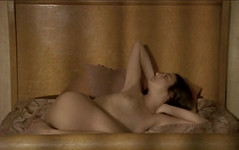

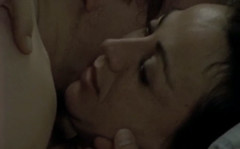
The title Documenteur blends the French words for "documentarian" and "liar", just as the film blends documentary and fictional (albeit roman-a-clef, semi-fictions). But more intriguingly, the film's visual texture suggests the way that plain sight can lie, manipulated by circumstances. Emile is a woman in the throes of despair, but unable, due to the obligations of child-rearing, to succumb to that despair with romantic dissipation. Instead she crawls through her day, hoping the feelings will go away, and in the meantime living as though submerged in dirty water. Varda objectifies this situation by shooting the world's most famously bright city with deliberate dullness that poses as objectivity. The loose blocking and natural light exudes you-are-there documentary realism, but it's all deliberately muddy.
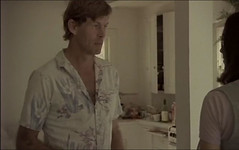
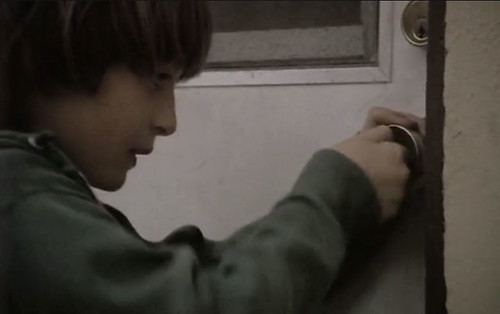
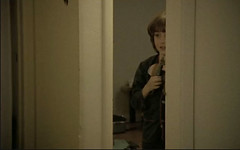
One of depression's most insidious powers is its ability to pose as accurate perception, as though the hollowed-out world the sufferer sees is truer than the illusions of the happy, and Documenteur perfectly captures both the grimness of that world and its pretence of simple reality. The camera is both documentarian and liar, it's very identification with the depressed protagonist compromising its ability to capture reality.
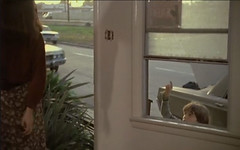
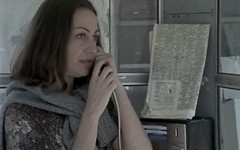
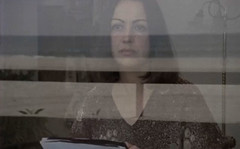
The film is also notable for its ground-level view of Los Angeles, an L.A. without palm trees or movie stars. Keeping her eye downcast, Varda ably captures the placeless residential districts of the city, and its low-key immigrant communities. The shots of dumpster-diving for furniture, or fishing on Venice Beach, evoke precisely what day-to-day life is like in L.A.'s eternal June, while the scenes in the luxurious beach house portray how the rich of late-70s L.A. built faux-organic hermitages that produced the illusion of nature while remaining sealed off from the outside.
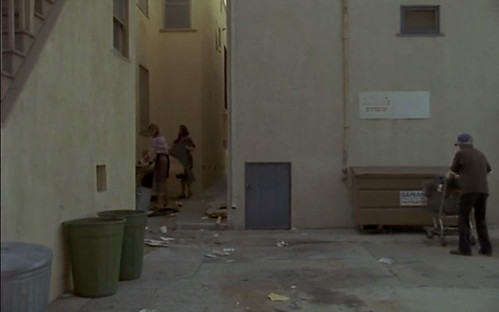

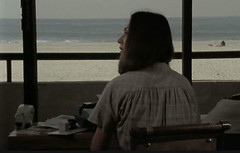

Part of the movie's trouble may be that the story, inspired by Varda's painful separation from husband Jacque Demy, was just too personal for her to achieve the compassionate yet unforgiving perspective of her other films. In Cleo From 5 To 7, for example, Varda is at once skewering Cleo's narcissism while remaining deeply sympathetic to her fears of losing the beauty she's utterly dependent on. Similarly, Varda's masterpiece Vagabond exudes deep sorrow for its protagonist's lonely death while never forgetting that she's a pain in the ass whose fate is pretty much her own damn fault. Even a documentary like Ydessa & The Bears teases the subject's self-dramatizing grandiosity (especially embarrassing when placed beside the Holocaust memories Ydessa's work deals with) while acknowledging the power of her emotions.
No such tension is achieved in Documenteur; the circumstances behind the protagonist's separation are never touched on, her love for her child is never problematized, even her sorrow is a little generic. Despite an occasional bout of willfulness or temper, and Sabine Mamou's interesting face, there's just not much to identify Emile, the protagonist, as a unique individual, or make her anything but a transparent reactor to circumstances. Worse still, in the film seems to aim for a simple identification with its lead that is much more conventional than what Varda usually pulls off with such aplomb. When she cries, we're to cry along with her, and when she succeeds we're prodded to admire; this is cinema rhetoric of the most ordinary kind, and it's a shame to see Varda fall into it.
Varda's photographic eye, however, is always unique, and that alone makes the movie worth a look. Too many cinematographers, and too many viewers, think that saturated colors and high contrast equals good photography. What's striking about Documenteur is how much Varda accomplishes visually with natural light, soft contrast, and deliberately dull colors. Though obviously shot quickly and cheaply, the look is reminiscent of beautiful 70s productions like McCabe and Mrs Miller or Alice Doesn't Live Here Any More.



The title Documenteur blends the French words for "documentarian" and "liar", just as the film blends documentary and fictional (albeit roman-a-clef, semi-fictions). But more intriguingly, the film's visual texture suggests the way that plain sight can lie, manipulated by circumstances. Emile is a woman in the throes of despair, but unable, due to the obligations of child-rearing, to succumb to that despair with romantic dissipation. Instead she crawls through her day, hoping the feelings will go away, and in the meantime living as though submerged in dirty water. Varda objectifies this situation by shooting the world's most famously bright city with deliberate dullness that poses as objectivity. The loose blocking and natural light exudes you-are-there documentary realism, but it's all deliberately muddy.



One of depression's most insidious powers is its ability to pose as accurate perception, as though the hollowed-out world the sufferer sees is truer than the illusions of the happy, and Documenteur perfectly captures both the grimness of that world and its pretence of simple reality. The camera is both documentarian and liar, it's very identification with the depressed protagonist compromising its ability to capture reality.



The film is also notable for its ground-level view of Los Angeles, an L.A. without palm trees or movie stars. Keeping her eye downcast, Varda ably captures the placeless residential districts of the city, and its low-key immigrant communities. The shots of dumpster-diving for furniture, or fishing on Venice Beach, evoke precisely what day-to-day life is like in L.A.'s eternal June, while the scenes in the luxurious beach house portray how the rich of late-70s L.A. built faux-organic hermitages that produced the illusion of nature while remaining sealed off from the outside.




Subscribe to:
Comments (Atom)